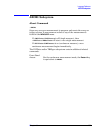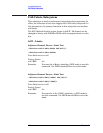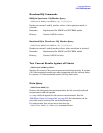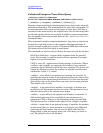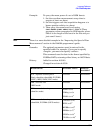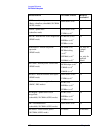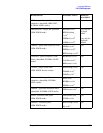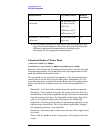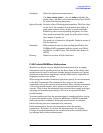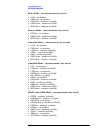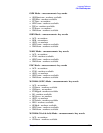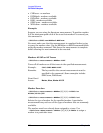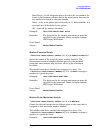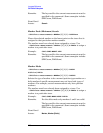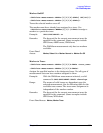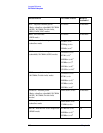
Chapter 5 201
Language Reference
CALCulate Subsystem
Example: Select the spectrum measurement.
Use CALC:DATA4:PEAK? -40,10,FREQ to identify the
peaks above
−40 dBm, with excursions of at least 10 dB,
in order of increasing frequency.
Query Results: Returns a list of floating-point numbers. The first value
in the list is the number of peak points that follow. A
peak point consists of two values: a peak amplitude
followed by the its corresponding frequency (or time).
If no peaks are found the peak list will consist of only
the number of peaks, (0).
The peak list is limited to 100 peaks. Peaks in excess of
100 are ignored.
Remarks: This command uses the data setting specified by the
FORMat:DATA command and can return real 32-bit,
real 64-bit, or ASCII data. The default data format is
ASCII.
History: Added in revision A.03.00 and later
CALCulate:MARKers Subsystem
Markers can be put on your displayed measurement data to supply
information about specific points on the data. Some of the things that
markers can be used to measure include: precise frequency at a point,
minimum or maximum amplitude, and the difference in amplitude or
frequency between two points.
When using the marker commands you must specify the measurement
in the SCPI command. We recommend that you use the marker
commands only on the current measurement. Many marker commands
will return invalid results, when used on a measurement that is not
current. (This is true for commands that do more than simply setting or
querying an instrument parameter.) No error is reported for these
invalid results.
You must make sure that the measurement is completed before trying
to query the marker value. Using the MEASure or READ command,
before the marker command, forces the measurement to complete
before allowing the next command to be executed.
Each measurement has its own instrument state for marker
parameters. Therefore, if you exit the measurement, the marker
settings in each measurement are saved and are then recalled when
you change back to that measurement.



